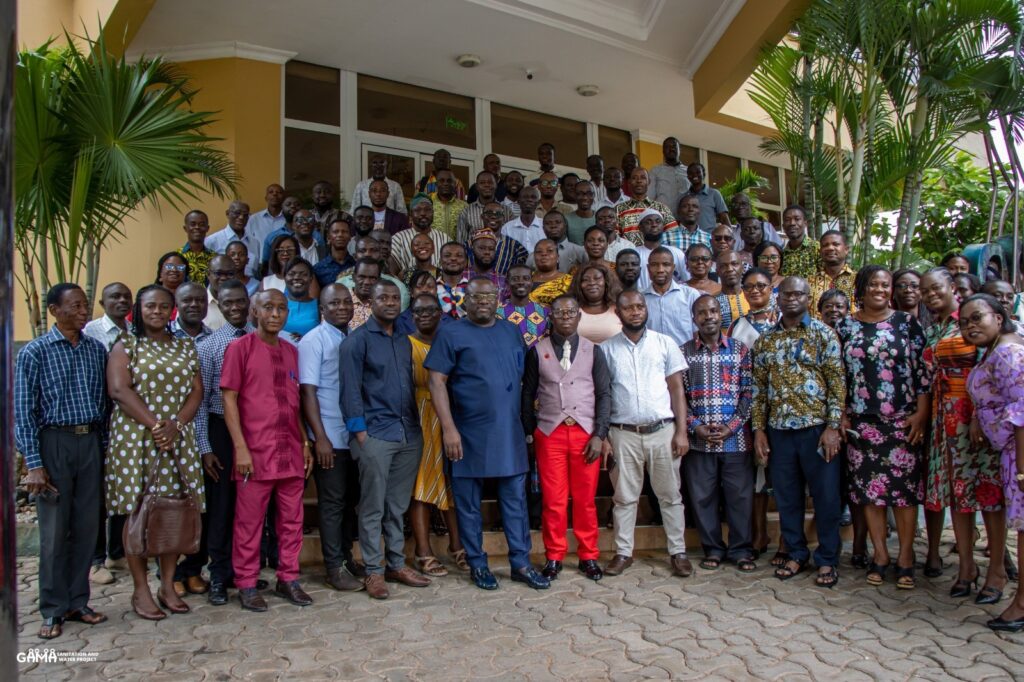School management committees, parent-teacher associations and school authorities have been urged to effectively manage and maintain sanitation and water facilities in the schools to prolong their lifespan.
“If we don’t show commitment to effectively manage these facilities that we’re sinking in money, I can tell you… funding partners will not be willing to support because institutional facilities are not cheap,” Mr George Asiedu, Coordinator for the Greater Kumasi Metropolitan Area (GKMA) Sanitation and Water Project (SWP), said on Thursday.

“The positive impression we give will help our plans of extending to other parts of the country for construction of institutional water, sanitation and hygiene (WASH) facilities.”
Mr Asiedu was speaking at a knowledge sharing forum on operation and maintenance of school WASH facilities in Kumasi.
The forum targeted heads of schools, PTA chairpersons, and school health education programme coordinators, selected from the eight-implementing metropolitan, municipal and districts of the project.
The beneficiary municipalities are Asokore-Mampong, Old Tafo, Ejisu, Kwadaso, Oforikrom, Asokwa, Suame and Kumasi Metropolitan Assembly.
The project, which is being executed by the Ministry of Sanitation and Water Resources, through the GKMA-SWP has a component, which is currently building 129 institutional sanitation facilities for schools and a few healthcare institutions.
Mr Asiedu said some schools in Ghana did not have access to improved toilet facilities and “if we are to achieve SDG-6, we need to ensure that everyone living anywhere has access to improved toilet facility.”
He said all the 129 institutional toilet facilities would be handed over by the end of November, this year, and that the GKMA-SWP needed to iron out maintenance and operational routes with beneficiaries before the handing over.
He gave the assurance that the project would supply some logistics for a six-month period and urged the schools’ management to mobilize adequate funds to buy more of the supplies and employ janitors to clean the facilities.
“These may include sanitary pads, toilet paper, and detergents,” he said.
Ms Charlotte Adjei Marfo, the Programmes Manager, Ministry of Sanitation and Water Resources, said sustainability had been the main challenge with those institutional sanitation facilities.
“As a government institution, we think that we cannot continue to provide facilities and then two or three years later, when you request for schools without WASH facilities, you get the same list of schools you have already provided such facilities,” she said.
“So, we are taking a step further to engage the Ministry of Education, Ghana Education Service, and organisations in the WASH sector to come up with a sustainability paper that will guide the sector players as to how the facilities will be maintained.”
The funding partners are the World Bank, African Development Bank, and the European Union.
Florence Afriyie Mensah, GNA.

